After the oversized rainstorm, Seoul will ban the huge household group of the "parasitic" basement.
Author:Nine Pai News Time:2022.08.12
【Source: Nine Pai News】
"Grandma, you have to walk more at the hospital, eat well, and pay attention to your body." This is the last time a 72 -year -old Korean old man received a greeting text message from his granddaughter. Less than 4 hours later, the flood caused by the heavy rain in Serto poured into her two 40 -year -old daughters and the 13 -year -old granddaughter's home. Their home was located in a semi -basement.
Although the neighbors tried to rescue, the tragedy happened. In the early morning, after the rescue team arrived at the scene to dry the basement water, the two daughters and granddaughters of the old man had been killed.
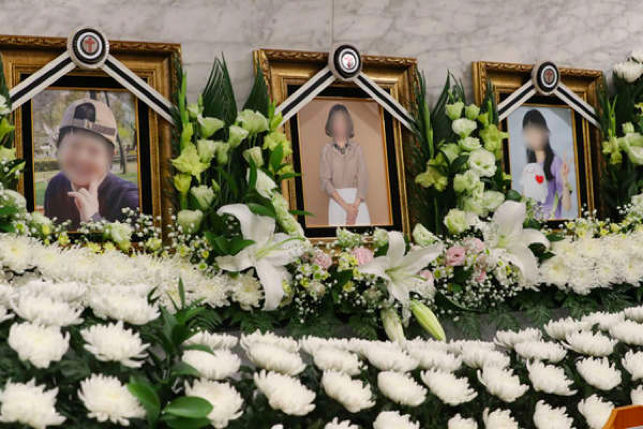
As of 6 o'clock on August 12, this heavy rain in South Korea had killed 13 people and 6 people disappeared, and nearly half of them were killed in semi -basement. The tragedy of the old man's family of three due to escape from unfortunately caused the reflection of Korean society. The Seoul Municipal Government announced on the 10th that it will negotiate with the Central Government of Korea on the 10th that the basement or semi -basement will be prohibited from using it as living space to prevent similar tragedies from performing again. Essence
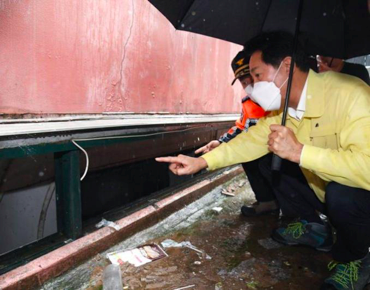
The mayor of Seoul Wu Shixun told Yonhap News Agency: "The basement and semi -basement house (Korean: banjiha) threatened the security of vulnerable groups in all aspects."
"Parasitic Apartment": Dark and humid, it is like a grave, where you can live when you have no money
The Korean movie "Parasitic" released in 2019 shows the harsh conditions and dangerous living environment of Seoul's "semi -basement life". Now the heavy rain that encountered once in 80 years has once again focused on the public live in the "parasite The huge group of apartments ".
According to statistics, as of 2020, Seoul alone had about 200,000 underground or semi -underground houses, accounting for 5%of Seoul's house. Data from the South Korean Department of Statistics show that in 2020, a total of 32.732 million households in South Korea lived underground or semi -underground houses. Based on the average 1.9 people per household, more than 620,000 people lived in semi -basement.
In the semi -underground house, the light is so weak that even meat plants cannot survive, and people outside can peep at the basement through the window. The teenagers will smoke by the window. The alcoholic will urinate by the wall in the middle of the night. The quarrel passing by the couple can be heard clearly in the basement.
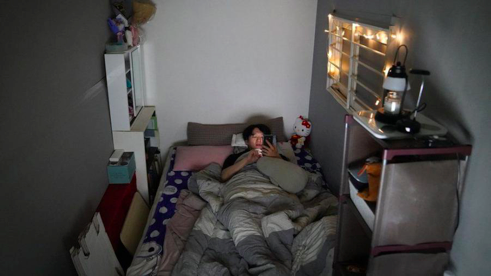
In Seoul, "banjiha" is a place where thousands of low -income groups live. They work hard and hope to have a better future. The 31-year-old Oh Kee-Cheo is one of them. He lives in a small, dark semi-basement.
In the rainy season, he would fight with too high indoor humidity. At this time, the mold will quickly climb the wall, and the room exudes a bad odor. Just as the daughter of the poor family in the movie "Parasitic" said: "This is the smell of the basement, unless we leave this place, the smell will not disappear."
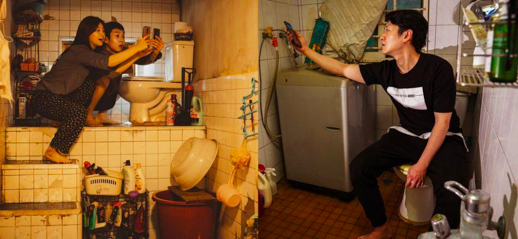
The room in the basement is very aggressive. The bathroom space where the bathroom is bathing every day is small. There is no sink. The floor is half meters above the floor floor and the ceiling is very low. Oh Kee-Cheo can only open your legs when standing inside, because you will hit your head together.

Oh Kee-Cheo said that when he moved in for the first time, his tibia was bruised by the steps, and his arm pestle to the wall of the concrete was also abused, but he was completely used to it now. "I remember all now all all I remember everything Where are the places and lights that are easy to be scratched. "
The room living in the semi-underground saves Oh Kee-Cheo, but he said that once people hear him live underground, they will be sympathetic to him. Good houses are important. Banjiha is a symbol of poverty. Maybe this is why I live in who I live. "
Single-parent mother Shin Hyun-Rim and her daughter also moved into a half-ground three-bedroom room around 2007, because this was the only residence that they could afford to be in Seoul after leaving the original home.
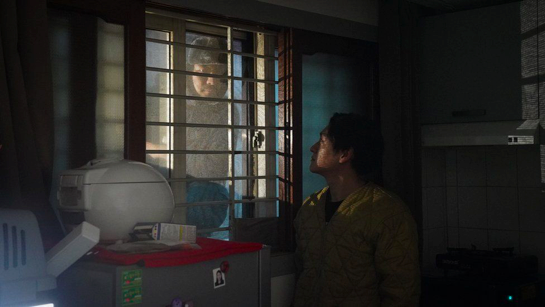
There were very few sunshine in the room, so that she had to turn on the light during the day. SHIN said that she felt that the hearing became more keen after she lived underground -the sound of footsteps on the ground, vocal car sounds, and natural wind and rain, she heard more accurately than before. Not long after moving in, the thief slipped in from the window on the ground. Later, she could only install a fence similar to a prison.
"This is the last place you can live when you have no money," Shin said. "Even if it makes people feel like a grave."
History created the "parasitic apartment", and poverty continued it.
These narrow houses can be traced back to decades ago, when the conflict between North Korea and South Korea.
In 1968, the North Korean commando sneaked into Seoul to perform the task of assassinating South Korea ’s then president Park Jung -hee. Despite the failure of the raid, the assassination exacerbated the tension between the two countries. Many North Korean armed agents infiltrated South Korea and caused many terrorist incidents.
Due to worrying about the upgrading of the situation, the South Korean government updated the architectural specifications in 1970, requiring all new low -rise apartment buildings to have a basement in order to use the national emergency as an attack bunker.
Initially, the "Banjiha" residential space was illegal to rent such a "banjiha", but during the 1980s' housing crisis, the government was forced to legalize these underground space because of the insufficient housing space in Seoul.
In 2018, the United Nations pointed out that although South Korea is the 11th largest economy in the world, the lack of economic affordable houses is a huge problem in the country, especially for young people and poor people.
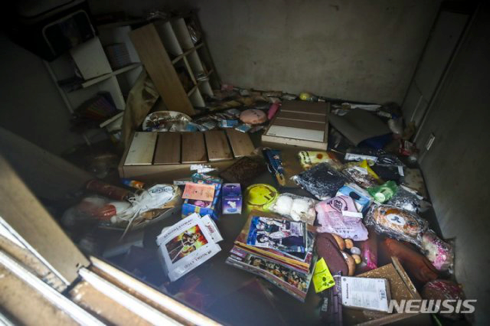
The half basement apartment is a helpless choice under the increasing increasing house price and increasing income. In 2020, the average monthly salary of people in South Korea is about 2 million won (about 10,000 yuan), and the monthly rent of the semi -basement apartment About 540,000 won. The South Korean Institute of Homeland Research said in a report in a report in 2020 that the reason why Seoul had a large number of semi -underground houses was mainly because the cost of residence on the ground was too high. The survey shows that 29.4%of the semi -basement residents in Seoul are basic living security funds. The writer of the report, Cui Enying, director of the South Korean Municipal Institute, said: "The basement is the last fortress of poor families."
After the "parasitic apartment" was canceled, where should the huge residential group go?
The Seoul Municipal Government announced on the 10th that the basement or semi -basement will be gradually prohibited as living space. For underground and semi -underground houses that have been approved, the government will give a wide range of about 10 to 20 years, and these "banji" houses can be demolished in turn during this period.
After the tenant moves out of the basement and half -underground, the underground space will be changed to non -residential use. In order to encourage the enthusiasm of homeowners to participate, the government will also promote the plan to buy such vacant houses from the Seoul Residential City Commune. In addition, for the existing tenants who are prone to underground and semi -underground houses that are prone to flood areas, the government provides support for public rental housing or housing vouchers through housing upgrades.
During this month, the Seoul Municipal Government plans to confirm the status quo of about 17,000 underground or semi -underground houses and put forward countermeasures. In addition, after a comprehensive investigation of 200,000 underground and semi -underground houses in the center of Seoul, the government will build databases and classify and manage the risk phase (stage 1 to 3).
The mayor of Seoul Wu Shixun said: "Underground and semi -underground houses are a kind of backward residential type, and now it should disappear."
However, House prices soared, the gap between the rich and the poor continued to increase, and the shortage of affordable housing has always been a problem that South Korea needs to solve. Some residents told the South Korean Pioneer that after the "banji" residence was banned, they did not know where to go because there was no choice after leaving.
The 77-year-old SOHN MAL-NYEON has lived in the semi-basement of Seoul for 50 years. Her residence was drowned by the smelly flood in the rainstorm. For the government announced, she told the South Korean Pioneer: "What do you want people to do? Do they (government) know? People live here because they are cheap. "
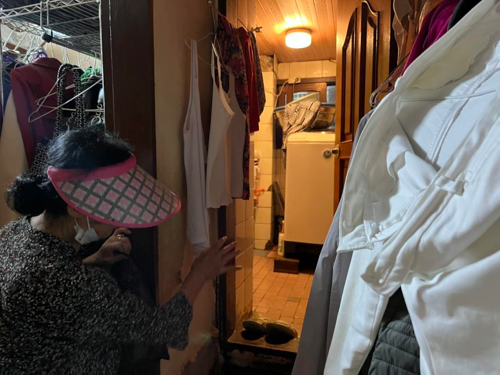
Jiupai journalist Liang Xia
The copyright belongs to the original author and pays tribute to the original
- END -
Zelei: In the past 24 hours, the Ukraine has suffered serious losses
On the evening of the 14th local time, Ukrainian President Zelezki said in a video speech that in the past 24 hours, the Ukraine suffered serious losses in Donbas and Halkov.He also said that the curr
[Truth | Morning] This is not a Hollywood movie, but the "horror daily" in the United States
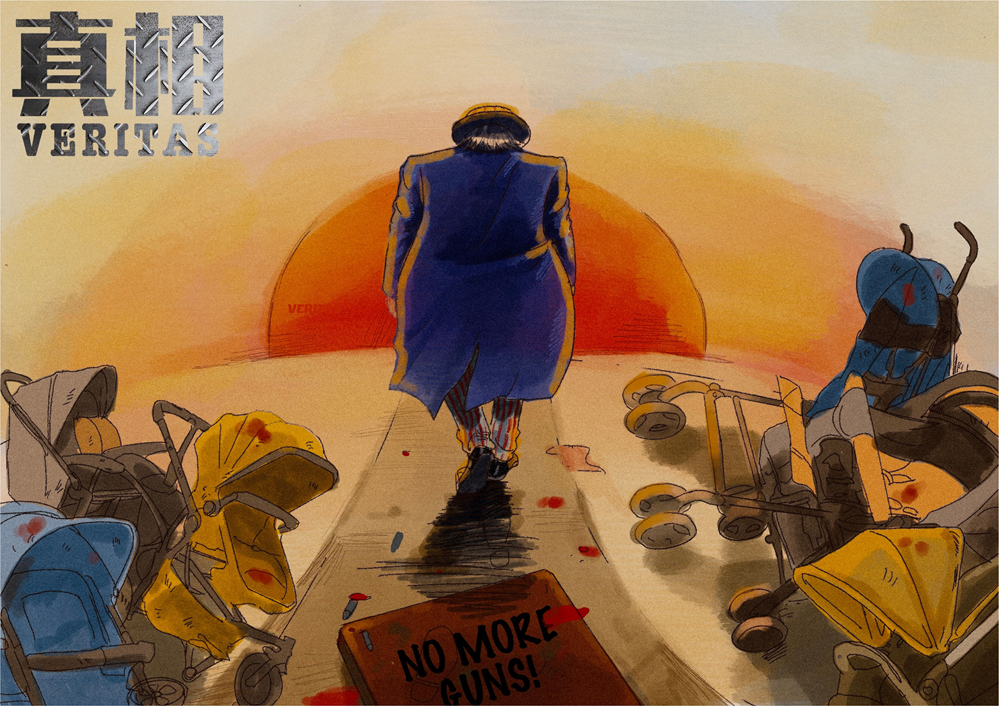
You have to do more! On July 11, local time, a male protesters rose from the audie...